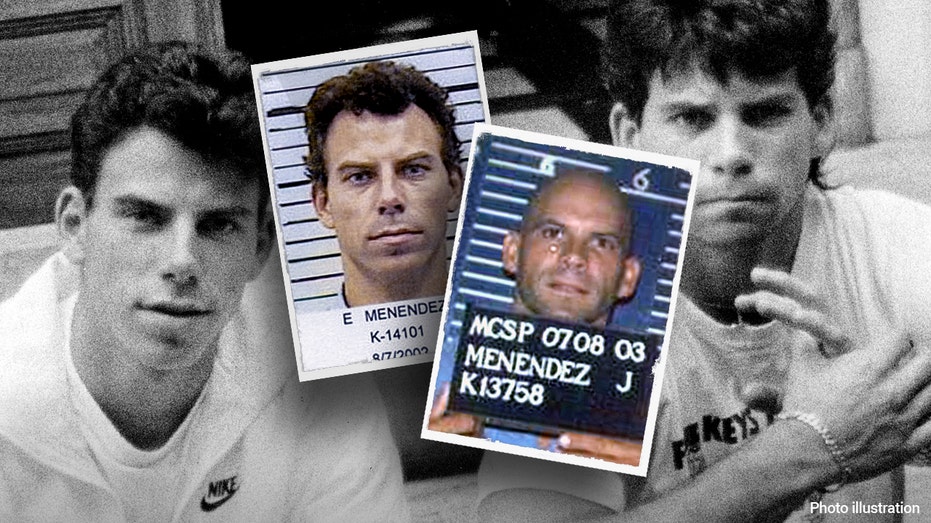California Lawmaker Warns Menendez Brothers Case Could Trigger Legislation to Release Thousands of Killers
California lawmaker Brian Jones warns that a new bill could free over 1,600 killers, citing connections to the Menendez brothers' case and social media influence.

California lawmakers are facing growing controversy following the passage of SB 672, a bill that could open the door for parole hearings for certain inmates sentenced to life without parole for crimes committed before the age of 26. At the heart of the debate is renewed attention on the case of Erik and Lyle Menendez, whose resentencing has reignited public and political arguments over justice, rehabilitation, and public safety.
Senate Minority Leader Brian W. Jones, a Republican, did not mince words in his criticism of the legislation and the motives he believes are behind its resurgence. “California Democrats just opened the prison gates for over 1,600 cold-blooded killers,” Jones stated, underscoring his concerns about the potential consequences for public safety. He went on to accuse Democratic lawmakers of prioritizing the interests of convicted killers over those of victims and their families, and called the bill “a shameless attempt to ride a wave of social media sympathy with zero regard for the thousands of other brutal killers their bill could unleash.”
Jones also questioned the timing of the bill’s re-emergence, pointing to heightened public interest in the Menendez brothers’ case as a catalyst. “As soon as the Menendez brothers’ situation started trending, all of a sudden this bill comes up again,” he remarked. He argued that this was a cynical effort to gain political traction amid increased media attention, rather than a move grounded in genuine concern for reform or justice.
SB 672, known as the Youth Rehabilitation and Opportunity Act, was introduced by Democratic Senator Susan Rubio and passed the state Senate with a 24-11 vote. The measure now heads to the California Assembly for further consideration. The bill would allow individuals who committed crimes before turning 26, and were sentenced to life without parole, to request a parole hearing after serving at least 25 years. However, it contains amendments that exclude individuals convicted of particularly egregious offenses—such as the murder of law enforcement officers or mass shootings at schools—from eligibility.
The Menendez brothers, who were convicted for the infamous 1989 murders of their parents in Beverly Hills, have become a focal point in this legislative battle. Both Erik and Lyle Menendez remain incarcerated but are now eligible for parole, with a hearing scheduled for August. Their resentencing followed changes in California law, specifically AB 600, which allows for the resentencing of inmates to align with current legal standards. This development has fueled debate over whether such reforms serve justice or undermine it.
Jones maintains that these legislative moves send the wrong message. “It’s pretty straightforward to me. These people were convicted of very heinous murders with a sentence of life without parole. And for us to go back on that sentencing now and then the victims to be re-victimized, the families of the murdered, to have to continuously relive this is unconscionable to me,” he said. He further emphasized that releasing the Menendez brothers—along with others eligible under SB 672—poses an unacceptable risk to Californians.
On the other side of the aisle, State Senator Rubio expressed disappointment at what she called a gross misrepresentation of her bill. She insisted that her efforts had been transparent and that her invitation for bipartisan dialogue remains open, noting, “It is unfortunate that the bill has been grossly misrepresented. I am disappointed that my friends from the other side of the aisle continue to peddle misinformation when, out of respect for them, I went over in detail what the bill does and does not do.”
Los Angeles District Attorney Nathan Hochman, reflecting on the recent Menendez resentencing decision, highlighted the gravity and complexity of such cases. He stressed, “Justice should never be swayed by spectacle,” and insisted that the principles of justice and the needs of both victims and the broader community must remain central considerations in any decision regarding parole or resentencing.
As the bill now awaits consideration in the State Assembly, the debate shows no sign of abating. Advocates argue that young offenders—including the Menendez brothers—deserve a chance at rehabilitation and review, especially as legal standards evolve. However, critics remain deeply concerned, warning that such reforms may jeopardize public safety and inflict further pain on victims’ families. For now, the fate of SB 672—and potentially hundreds of inmates with similar sentences—remains uncertain as California continues to grapple with questions of justice, redemption, and risk.




